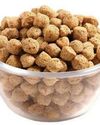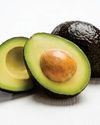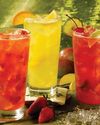
In addition, food colorants should preferably be natural rather than synthetic compounds. Micro-organisms already produce industrially useful natural colorants such as carotenoids and anthocyanins. Microbial food colorants can be produced at scale at relatively low costs. This article highlights the significance of color in the food industry, why there is a need to shift to natural food colors compared to synthetic ones and how using microbial pigments as food colorants, instead of colors from other natural sources, is a preferable option.
However, the challenges faced by the use and development of food grade microbial pigments can be overcome by using advanced techniques including metabolic engineering and nanotechnology.
Colors are the most pleasing and first parameter to be noticed about any article by the receptor. Artificial or synthetic colors mostly used by the food processing and cosmetic industries are reliable and economical as compared to the natural colorants which are expensive, less stable, and possess lower intensity. Organizations
like the World Health Organization (WHO), the U.S. Food and Drug Administration (FDA), and the European Food Standards Authority (EFSA) have recommended the safe dosage of artificial colors in food, drug and cosmetic items. However, many synthetic colorants have been banned or being banned due to their hyperallergenicity, carcinogenicity and other toxicological problems.
These adverse effects of synthetic colors have made the scientific community skewed towards natural colors. Many research efforts have been made to replace synthetic pigments with natural pigments because nature is a rich source of colored pigment producing organisms including plants, animals and microorganisms.
This story is from the {{IssueName}} edition of {{MagazineName}}.
Start your 7-day Magzter GOLD free trial to access thousands of curated premium stories, and 9,000+ magazines and newspapers.
Already a subscriber ? Sign In
This story is from the {{IssueName}} edition of {{MagazineName}}.
Start your 7-day Magzter GOLD free trial to access thousands of curated premium stories, and 9,000+ magazines and newspapers.
Already a subscriber? Sign In

Therapeutic Use Of Indian Winter Cherry (Ashwagandha)
Ashwagandha is one of the most important herbs in Ayurveda, which is a traditional form of alternative medicine based on Indian principles of natural healing. Ashwagandha is a small, woody shrub in the Solanaceae family that grows about two feet in height.

The Dairy Chain Revolution: Ensuring Freshness and Efficiency
Dairy products are an integral part of the food processing industry, forming milk, cheese, yogurt, and butter are highly perishable and demand meticulous care to preserve their quality and safety throughout their journey from farm to consumer.

Plant-Based Proteins from Soybean: A Comprehensive Exploration
Introduction - In recent years, the global food landscape has witnessed a remarkable shift toward plant-based diets, driven by a growing awareness of health, environmental sustainability, and ethical considerations.

Avocado: The Green Ally in the Fight Against Diabetes
In a world inundated with processed foods laden with excessive sugars, salts, and artificial additives, rates of diabetes across the world have been rising over the past decades link.

Inspection Technology from KHS: Precision and early detection for holistic line thinking
KHS GmbH continuously develops and modernizes its inspection technology.

Packaging for the Future: How Aseptic Solutions are Transforming the Dairy Industry
Introduction - The Dairy Aseptic Packaging Market T is a dynamic and transformative sector within the rapidly evolving food and beverage industry.

Sidel introduces its breakthrough bottle washer with powerful dual technology - Hydra Ultrasonic
With beverage bottlers requiring a solution that reduces production costs while improving their environmental footprint, Sidel has launched its new bottle washer which combines chemical and ultrasound technology for the highest performance. Sidel will unveil Hydra Ultrasonic for the first time at the international trade show, BrauBeviale.

Revolutionizing Dairy Packaging: Technology & Innovations Shaping the Future
Dairy packaging plays a vital role in maintaining the quality and safety of a wide variety of products, including milk, butter, cheese, and yogurt.

Proost: Brewing Passion, Driving Innovation, Redefining Quality
In an exclusive conversation Mr. Tarun Bhargava, Co-Founder & CEO of Proost, speaks about the brand's inspiring journey, its unique approach to brewing, and the innovative strategies driving its success. From Proost's commitment to quality and sustainability to its adaptability in a dynamic market, Tarun shares insights into what makes Proost a standout in the beverage industry.

Non-Alcoholic Beverages: A Booming Industry Across Global Markets
The global non-alcoholic beverage market has been expanding steadily, with an estimated value of over USD 1 trillion as of 2023. This growth is expected to continue, fueled by a shift in consumer preferences toward healthier and more mindful consumption habits. The market encompasses a variety of products, including non-alcoholic beers, soft drinks, juices, and functional beverages like energy drinks and flavored waters.